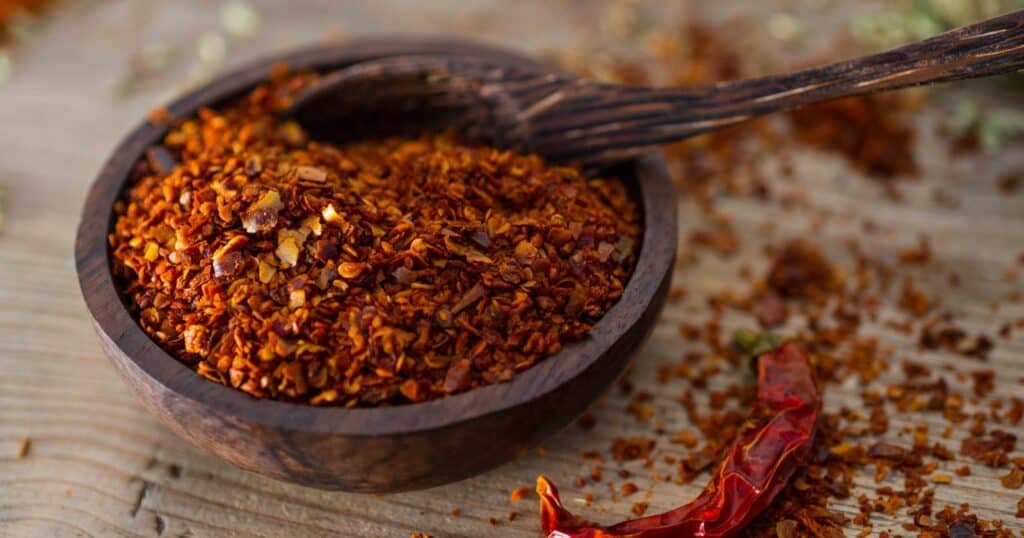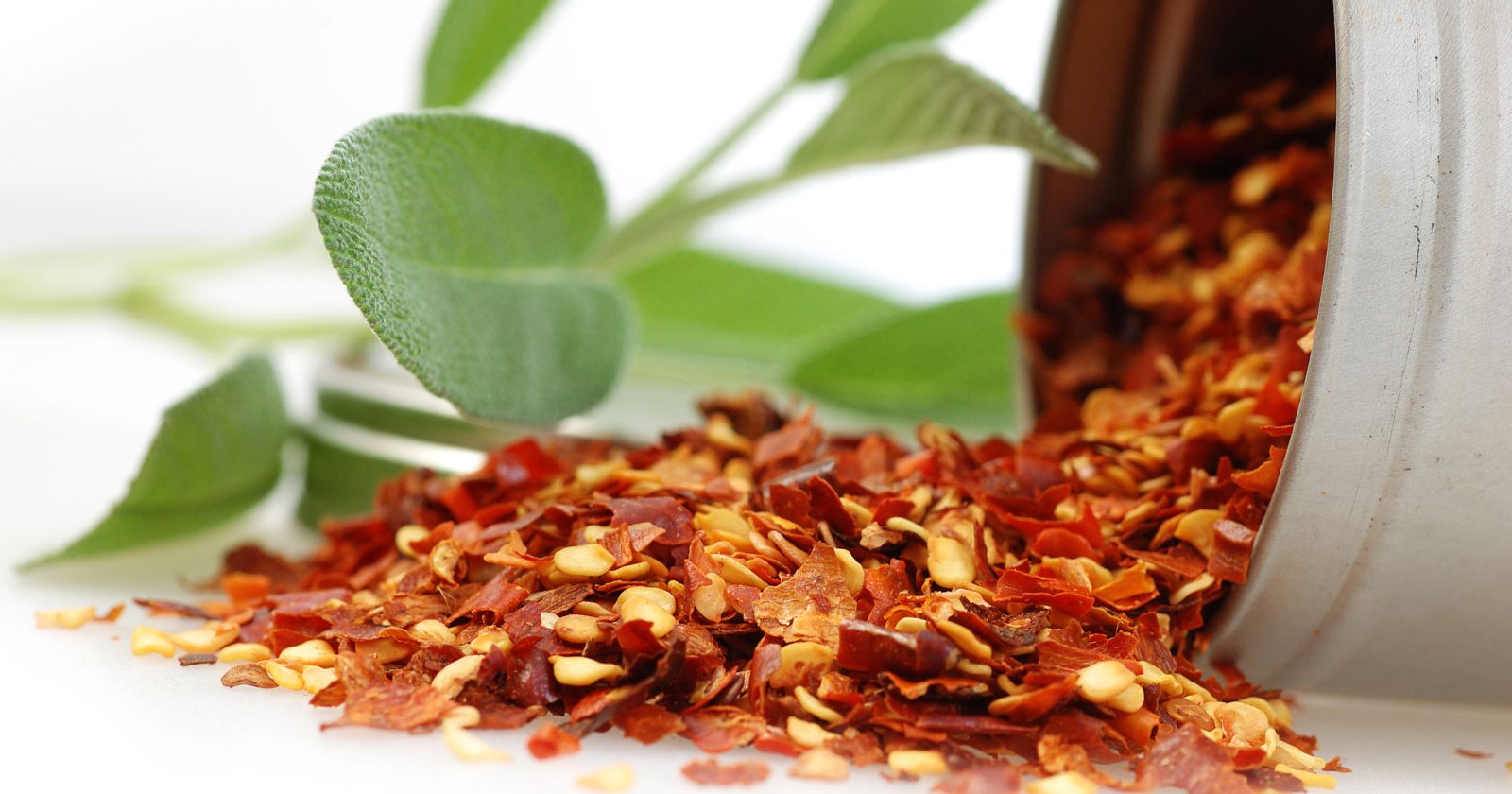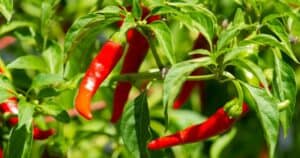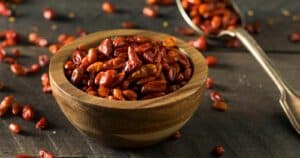Do you love to cook with zesty cayenne pepper? Have you ever wondered if shaking some into your garden could hurt your plants? This is a great question!
The answer is that cayenne pepper and red pepper flakes will not directly damage plants when used correctly. The spicy compound called capsaicin does not actually “burn” plant tissue.
In fact, cayenne and red pepper flakes can really help your garden when used the right way by:
- Keeping away pests like rabbits, deer, and insects
- Preventing fungal growth on leaves
- Possibly making plants produce more flowers and fruits!
But you do have to be careful not to use too much. Follow some simple tips like starting with diluted mixes and spraying plant leaves evenly. Avoid getting cayenne on flowers and edible parts.
With smart use, cayenne and red pepper flakes can give your garden a helpful spicy kick! This article explains exactly how to use them safely on plants and get all the benefits.
Are Cayenne and Red Pepper Flakes Harmful to Plants?

The short answer is no, cayenne pepper and red pepper flakes are not innately harmful to plants. The active compound that makes these spices hot, called capsaicin, will not burn or damage plants when used appropriately.
In fact, capsaicin offers some useful effects for gardens. Let’s explore the impacts of red pepper flakes and cayenne pepper on plants.
Pest Repellent
Capsaicin is highly irritating and repulsive to many animal pests like rabbits, squirrels, and deer. Sprinkling cayenne or red pepper flakes around plants creates an unpleasant sensory experience if they take a bite, deterring future nibbling.
Anti-Fungal Properties
Research shows capsaicin inhibits growth of fungal infections like powdery mildew and black spot that can damage plant tissues. Using cayenne/red pepper flakes may help ward off common plant fungi.
Stimulates Flowering and Fruiting
Some gardeners report heavier blossoming and increased yields after applying dilute cayenne spray to plants. The capsaicin may stimulate plant metabolism.
So in short, cayenne and red pepper flakes offer beneficial effects for plants in your garden when used correctly! Now let’s look at how to apply them properly.
Using Cayenne and Red Pepper Flakes as Natural Pest Repellents
Looking for safe, eco-friendly ways to prevent pests from munching on your garden goodies? Consider making your own cayenne or red pepper flakes spray!
Cayenne Pepper Spray Recipe:
- 1-2 tablespoons cayenne powder
- 1 quart water
- 1 teaspoon liquid dish soap
Red Pepper Flake Spray Recipe:
- 1-2 tablespoons crushed red pepper flakes
- 1 quart water
- 1 teaspoon liquid dish soap
Directions:
- Add cayenne/red pepper and dish soap to water in a spray bottle.
- Shake vigorously to combine.
- Mist leaves (especially undersides) and stems of susceptible plants. Avoid flowers.
- Reapply after rain. Store leftovers in the fridge.
This irritating but non-toxic solution helps repel squirrels, rabbits, deer, aphids, spider mites, Japanese beetles, and other unwanted nibblers!
For quick plant protection in a pinch, you can even sprinkle dry cayenne or red pepper flakes around the perimeter of garden beds. The strong scent deters small critters.
Proper Application of Cayenne and Red Pepper Flakes
To safely repel pests while avoiding plant damage, proper application of cayenne pepper and red pepper flakes is key. Here are some tips:
Concentration:
- Use a diluted mixture, starting with 1 tablespoon per quart of water.
- Increase concentration slowly if needed. Too high of a ratio risks burning plant tissue.
Avoid contact with blooms:
- Cayenne residue on flowers can deter pollinators. Focus applications on stems, leaves, and soil.
Direct contact:
- Mist the pepper solution directly onto plant surfaces, not just surrounding soil. This maximizes pest repellency.
Even coverage:
- Thoroughly coat the undersides of leaves and vine stems where insects hide.
Reapply after rain:
- Rain washes away the capsaicin, so reapply after storms.
Follow these guidelines to maximize pest protection while keeping your plants happy and healthy!
Benefits of Using Cayenne and Red Pepper Flakes in the Garden
Wondering if it’s worth adding a little spicy kick to your gardening routine? Consider these benefits of using cayenne and red pepper flakes:
Natural pest control: Keeps away small critters like squirrels, rabbits, and deer without harsh chemicals. Also deters insect pests.
Anti-fungal properties: Cayenne helps prevent issues like powdery mildew and black spot disease on leaves and fruits.
May boost flowering and fruiting: Anecdotal reports indicate cayenne spray improves plant productivity in some species.
Weed suppression: Some gardeners sprinkle cayenne around unwanted weed seedlings to irritate and deter growth.
Easy to source: You likely already have red pepper flakes or cayenne powder in your kitchen
Budget-friendly: Much less expensive than buying commercial chemical repellents and pesticides. A little goes a long way.
Satisfaction of repelling pests naturally: Feel good about using an earth-friendly, non-toxic substance in your garden.
With all these perks, it’s worth giving cayenne and red pepper flakes a try this gardening season!
Common Myths About Hot Pepper Flakes and Plants
Before you shake up a spicy garden spray, let’s separate fact from fiction when it comes to myths about hot peppers and plants.
Myth: Hot peppers can cross-pollinate with sweet peppers and make them spicy.
Fact: Cross-pollination cannot change the innate heat level of existing sweet pepper plants. But hybrid seed pods can form with mixed heat traits.
Myth: Putting chili pepper flakes in bird food deters birds from feeding.
Fact: Birds cannot taste capsaicin. But the flakes will repel squirrels and other mammals from stealing the bird food!
Myth: Chili pepper plants need hot, dry climates to grow.
Fact: Pepper plants grow very well in warm, humid regions too as long as they get sufficient sunlight and irrigation.
Myth: Pepper seeds contain most of the heat compounds.
Fact: The placenta and internal white membranes that hold the seeds contain the highest concentration of capsaicin.
Myth: Growing hot and sweet peppers together will make the sweet ones spicy.
Fact: Proximity does not affect flavor. But isolated plants are less likely to cross-pollinate.
How to Prevent Accidental Damage From Hot Pepper Flakes
Though capsaicin won’t directly burn plants, you can still potentially cause damage by overapplying spices or using the wrong products. Here are some tips to avoid unintended harm:
- Carefully follow correct cayenne/red pepper flake ratios for garden use. Start very diluted until plants adjust.
- Never apply heavy amounts of dry spices directly to plant tissues. This risks chemical burning.
- Consider plant sensitivity. Be extra cautious with young seedlings and known pepper-sensitive species.
- Avoid getting cayenne concentrate on plant stems and especially flower parts. This can deter pollinators.
- Use pure, additive-free cayenne or red pepper flakes. Chili powder and other
spice blends may contain onion, garlic, or salt. - Wash edible plants thoroughly before consuming if using as a pest deterrent.
With careful, proper application focused on repelling pests, not seasoning plants, cayenne and red pepper flakes offer a natural, eco-friendly solution for gardeners seeking an extra spicy kick in their gardens!
The Takeaway: Cayenne and Red Pepper Flakes Can Safely Repel Garden Pests
Hopefully this guide gave you all the details you need to confidently use cayenne and red pepper flakes to give your garden pest control a little spicy kick!
The main takeaway is that capsaicin, the heat compound, will not directly damage or “burn” plant tissue. When diluted and applied correctly, these spices are a great natural and non-toxic deterrent.
Focus applications on leaves, stems, and the soil around plants. Start with a weak solution and increase strength slowly as needed. Avoid direct contact with flowers or edible parts.
With smart use guided by proper techniques, you can reap all the helpful benefits these spices offer your garden! Your plants will thank you for the extra protection.





